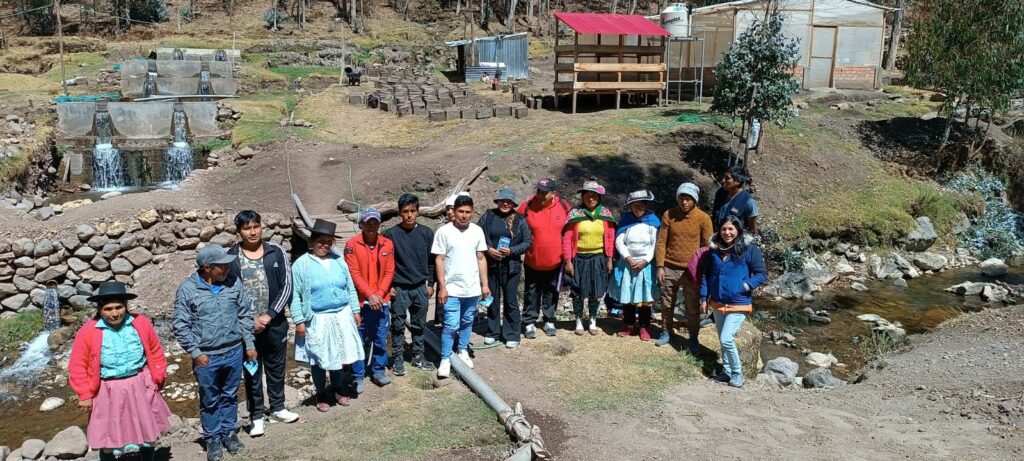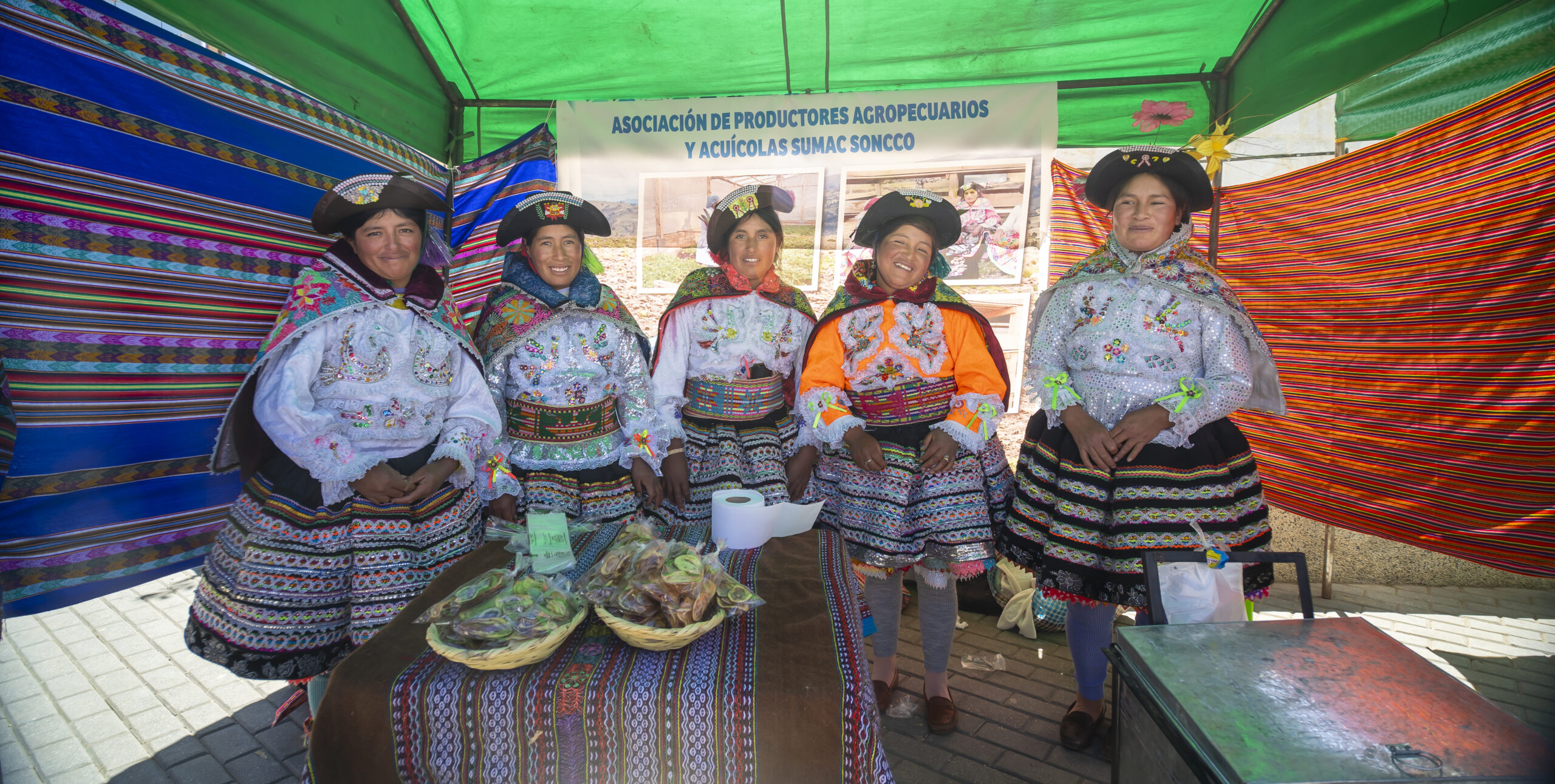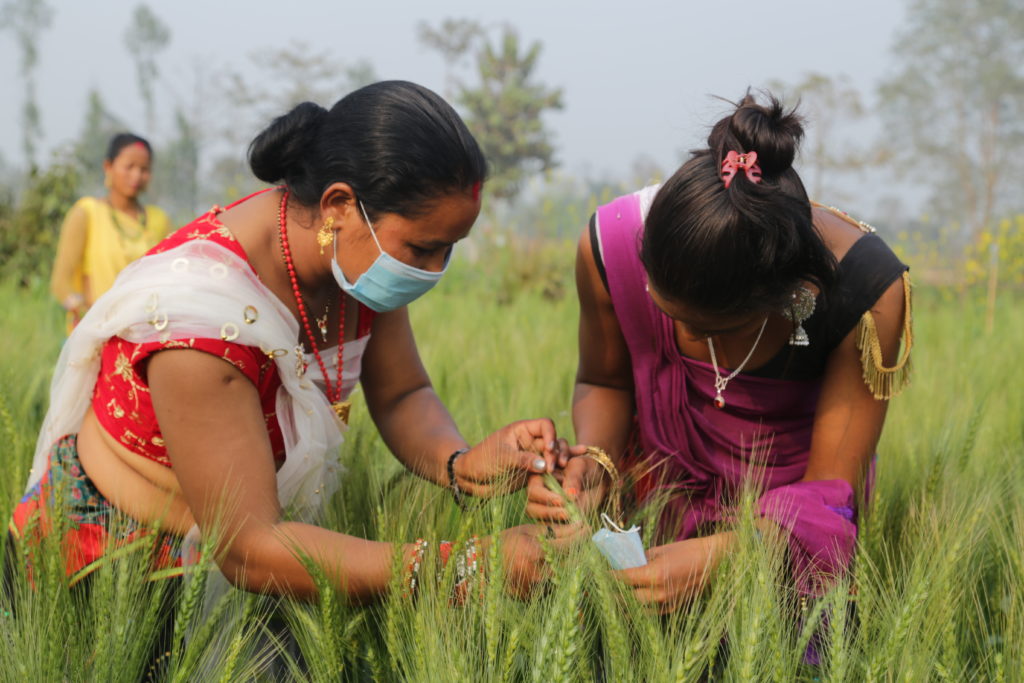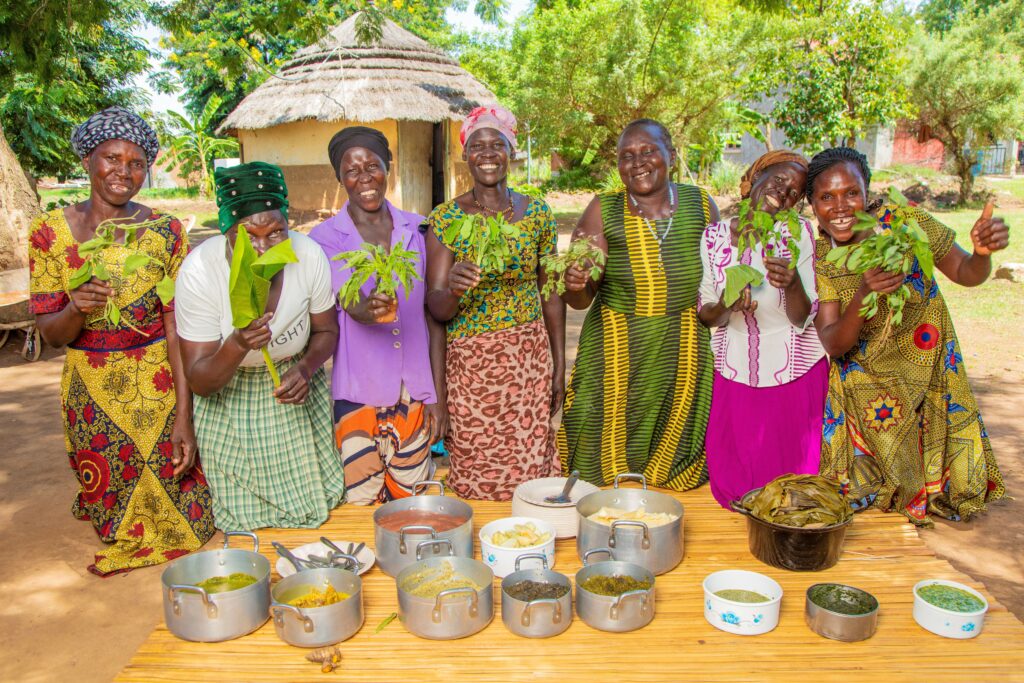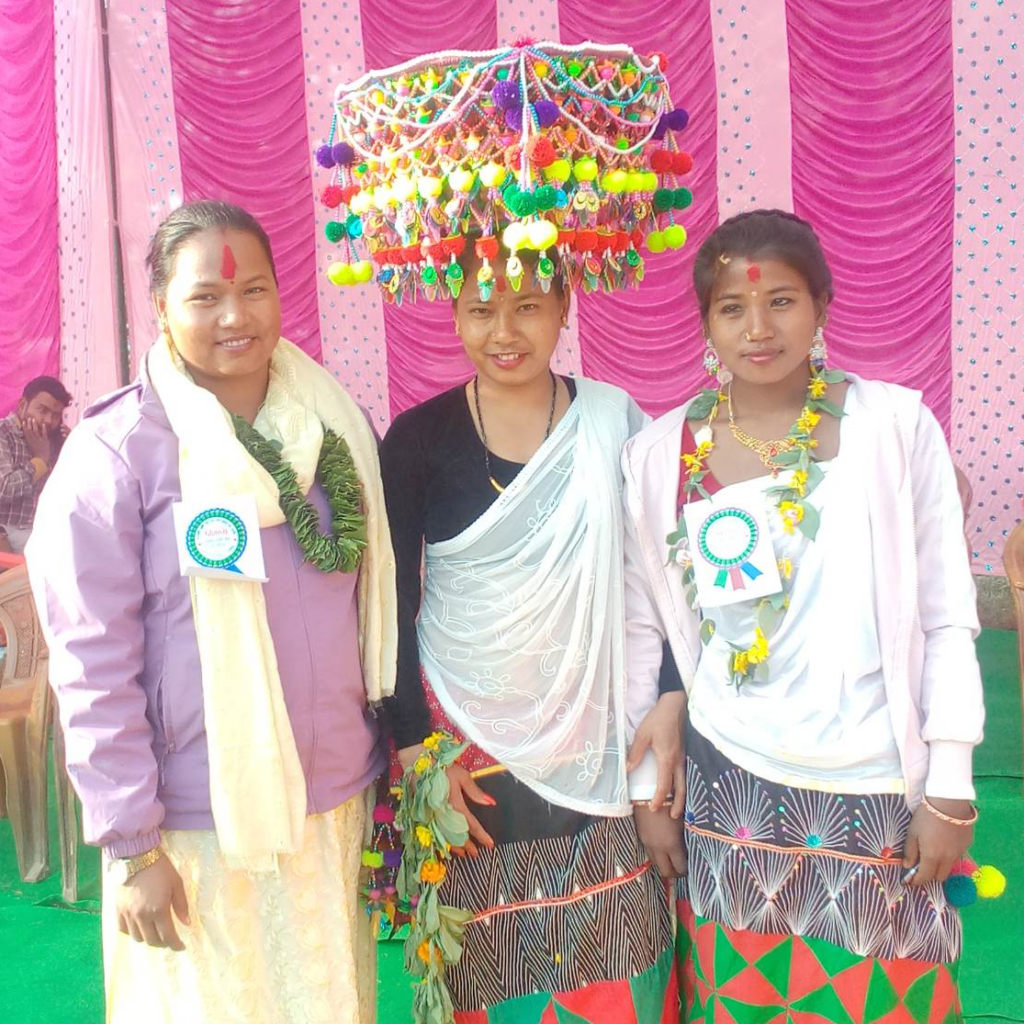By Angel Villavicencio, Milagros Ysuhuaylas, Kelly Alvarez, Pavel Lozano (Fovida) and Ana Lucía Núñez (Oxfam)
Agrobiodiversity and Barter Fair – Paucará 2023
On July 20, the “First Agrobiodiversity and Barter Fair – Paucará 2023” was held in the province of Acobamba, in the Huancavelica, central highlands of Peru.
Barter is an ancestral mechanism local communities use to supply themselves with seeds, food and other useful products that allow them to diversify their production and food systems.
The fair was a space for actors to connect, conservationist producers, women and men leaders of the FFS groups, economic organizations, agrarian associations, public and private institutions and academics from the National University of Huancavelica. It aimed for cross-learning and contributing to increase agrobiodiversity and re-value ancestral practices as adaptation measures to climate change and the current food crisis. In addition, there was an exhibition, sale and exchange of native seeds among producers, who showed the benefits of using and promoting local food plants due to their nutritional value. There were more than 250 varieties of tuberous species of native potato, olluco, oca and mashua and more than 30 varieties of Andean grains of wheat, quinoa, barley, kiwicha, kañiwa, broad bean and pea.
Attendees tasted ancestral recipes and culinary innovations based on local foods and seed producers promoted native seeds of traditional and certified categories, establishing contacts for their commercialization. The public institutions committed to strengthen coordination in promoting and recognizing the communities of the province of Acobamba as an Agrobiodiversity Zone, based on the richness of native crop varieties that are maintained in this territory.
This initiative was promoted by SD=HS and the District Municipality of Paucará, together with the Association of Guardians of the Native Potato (AGUAPAN), the Regional Agrarian Directorate of the region, the National Agrarian Health Service of Peru (SENASA Huancavelica), the Zonal Directorate of AGRORURAL, DESCO Centro, the Yanapai Group, the Ecumenical Center for Promotion and Social Action Centro (CEDEPAS Centro), and the National University of Huancavelica.
To the rhythm of the dance of the scissors and music of the pitureros of Huancavelica, the culture of the Great Chopcca Nation was placed front and center, and agreements were established to strengthen this event the next year.
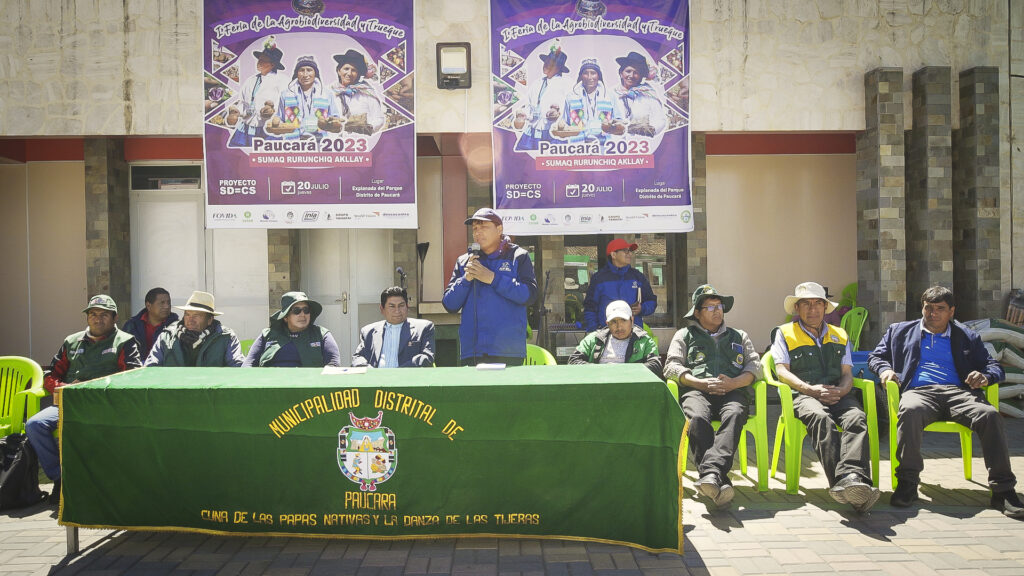
.
Native potato producers from the Pro Human Rights Association visited members of the Pacha Committee in Paucará, Huancavelica
On 17 August, a learning exchange visit took place in Paucará. The community of San Antonio de Culluchaca, in Huanta, Ayacucho, who works in alliance with Pro Human Rights Association (APRODEH) Ayacucho wen to the Pacha Committee, located in Paucará, in Huancavelica. A total of 6 women and 8 men participates, all of them native potato producers.
During the visit, participants shared valuable experiences on the production and marketing of traditional and certified native potato seeds, produced in an agroecological way and in harmony with nature. The president of the Pacha Committee welcomed the producers and explained the associative model of the committee. It is made up of three associations of producers from the communities of Paccho Molinos, Santa Cruz de Paccho and Chanquil, whose purpose is to produce and market certified and traditional native potato seeds of varieties such as cacho de toro, sangre de toro, qeqorani, peruanita, wiracuchi and sumacc sonco.
This type of activity has been very beneficial as it increases production capacity, strengthens negotiation capacity and establishes marketing and commercialization channels. In addition, the production process of certified pre-basic seed (produced in the greenhouse) and the multiplication of the basic seeds of the Peruvianita variety were presented. The producers from Ayacucho learned about the production process of traditional seeds with positive and negative selection methods and observed the storage of traditional seeds in pallets and seeds packed in 50 kg bags ready for marketing.
Finally, they exchanged native potato seeds, which is key in preserving agricultural wealth and biodiversity.
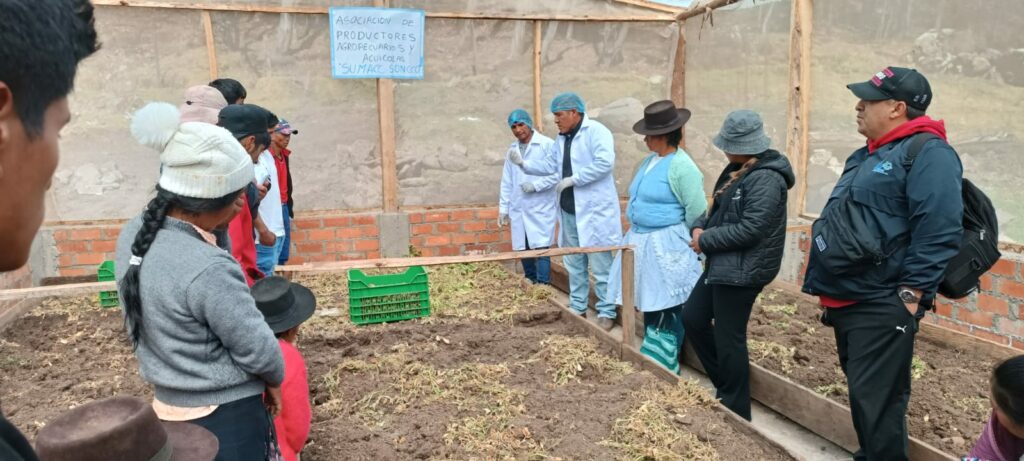
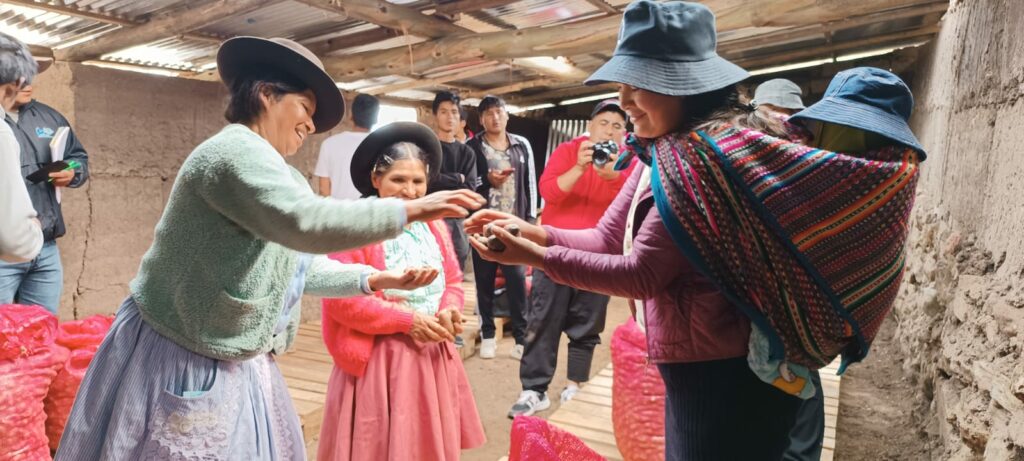
Contest of typical dishes based on iron-enriched local food plants – Paucará 2023
SD= HS promotes the use and consumption of local food plants. As such, the project participated in the contest of typical dishes based on little-known food plants consumed by the population of Paucará, organized by the District Municipality of the area.
Local food plants are part of the ancestral food diversity and contribute to nutrition and prevention of anaemia due to their nutritional contributions to a balanced and healthy diet.
The event was attended by 5 producers from the rural communities of Jatumpampa and Chanquil (Huancavelica) and the community of San José de Apata (Junín) who disseminated the nutritional benefits of 6 recipes based on local food plants rich in iron, in order to share part of the ancestral culinary wealth and revalue native foods.
